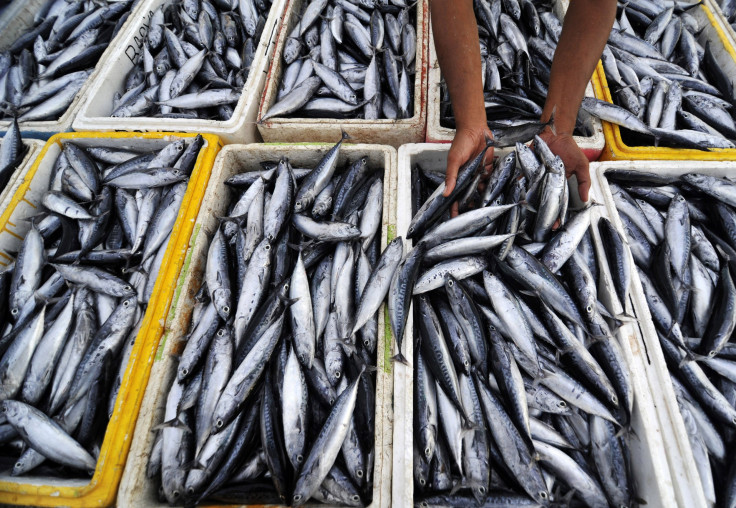Small, Fast-Growing Fish Like Sardines More Affected By Population Collapses

Ocean species that grow quickly and reproduce more frequently are more vulnerable to dramatic population falls than larger, slower-growing fish, according to a new study Wednesday. The researcher said the findings are counterintuitive, because the opposite dynamic holds true on land.
A scientist from Rutgers University in New Jersey found that faster-breeding fish like sardines, anchovies and flounder, actually experience dramatic population falls more often than larger fish like sharks or tuna.
“Rabbits are doing pretty well compared to rhinos,” Malin Pinsky, author of the research, said in a press release. “Mice thrive while lions, tigers and elephants are endangered.”
Pinsky studied population changes in 154 species of fish over 60 years, and was surprised to find that small fish with large populations were collapsing more often -- not seriously enough to face extinction, but enough to possibly disrupt marine ecosystems. He suggested that the difference in population volatility could be explained by overfishing and climate change. The results of his research were published in the journal Proceedings of the Royal Society B.
“Climate variations or natural boom-and-bust cycles contribute to population fluctuation in small fast-growing fish,” he said, “but when they are not overfished, our data showed that their populations didn’t have any more tendency to collapse than other fish.”
Pinsky found that population of several species had dropped to less than 10 percent of their historical levels, and that advances in fishing vessels and techniques after World War II triggered several collapses in sardine and anchovy populations.
He cited the example of sardines off the coast of Southern California -- a population that has seen natural fluctuations for thousands of years, but not at the levels that fast-growing fish species have seen in recent decades due to overfishing.
"Overfishing is a problem throughout the world and across all species, including slow-growing fish like sharks, many of which are in serious trouble," Pinsky said. "But it turns out that fishery collapses are three times more likely in the opposite kinds of species - those that grow quickly."
He added that climate instability compounded the effects of overfishing, greatly increasing the risk of population collapse.
"If environmental factors are driving the population down, previously sustainable levels of fishing might suddenly drive a collapse," he said. "The proper response would be to quickly change fishing practices, but every political or bureaucratic process has some lag."
© Copyright IBTimes 2025. All rights reserved.




















